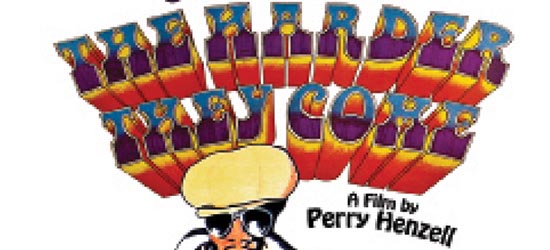Many films have been shot in Jamaica, some of which we may never know simply because they do not give credit to the island. But sometimes, if you look really closely at the scenery, you can tell the grass seems a little greener and the sea a little bluer. Hence our little island home has played a huge part in making many films look good, regardless of the story line taken.
There are over 45 films about Jamaica or Jamaican experiences. Some faded fast, but a few have become classics, like The Harder They Come, the first true-Jamaican motion picture released in 1972. This crime film, directed by Perry Henzell, starred reggae singer Jimmy Cliff who plays ‘Ivanhoe Martin’, a character based on ‘Rhyging’ a real-life Jamaican criminal who achieved fame in the 1940s.
Released at a time when reggae music was taking off internationally, The Harder They Come was an international sensation. Shown in Jamaica, as well as small cinemas throughout the United States, Canada and Europe, it gave fans an intimate look at Jamaica’s emerging pop-music culture and won the Best New Cinema award at the 1973 Venice Film Festival.
This, however, was not the first movie filmed on our beautiful island, as not only were Ian Flemings’ spy thrillers written here in St. Mary, but Jamaica was also featured prominently in the famous James Bond movie ‘Dr. No’ made fifty-eight years ago in 1962, and starring the ever debonair Sean Connery and the sultry Ursula Andress. That movie is now among the cult classics of Bond films and even our own musical legend Byron Lee had a cameo appearance in it.
In 1989, a motion picture Milk and Honey looked at the difficulties we face upon migration and received critical acclaim with Canada’s Genie Award where it was nominated for Best Actress (Josette Simon); Best Original Song (Louise Bennett); Best Score (Mickey Erbe, Maribeth Solomon) and won for Best Original Screenplay (Glen Salzman & Trevor D. Rhone).

The millennium came roaring in and with it critical analysis and research about where we went wrong as a nation, hence Life and Debt was a startling eye opener. This 2001 documentary film directed by Stephanie Black, examined the economic and social situation in Jamaica, focusing on the impact of the International Monetary Fund and the World Bank’s globalization policies. To say it ‘cleaned up’ awards would be an understatement as it won a bunch of awards over the next few years such as the 2004 Festival International du Film Insulaire, Ole de Groix, Special Jury Prize; 2004 Paris Human Rights Film Festival, Special Jury Prize; LA Weekly’s Ernest Hardy and Paul Malcolm 2002 Best Films list; Cineambiente Int. Environmental Film Fest 2002 Teen Jury Best Film of Festival, Turin, Italy; 2002 Prague One World Film Festival’s Audience Award; Best Documentary at the Jamerican Film festival plus the Critics Jury Award and an ‘Honourable Mention” at the Independent Feature Project/West Los Angeles Film Festival.
Fast forward to 2010 and young Jamaican director Storm Saulter premiered his film Better Mus’ Come and instantly the buzz began. The movie went on a festival tour and won the Audience Award for Best Feature Film and Fan Favourite Awards at both the Trinidad and Tobago Film Festival and the Bahamas International Film Festival. It also copped the audience award for Best Narrative Feature in the Bahamas.
One year later the film Ghett’a Life has raised the bar for the local film industry winning the “Best Pitch” Award at the Cannes Film Festival in France. This film festival, which is held annually in the southern region of France, is deemed the most prestigious film event in the world. Ghett’a Life gained substantial exposure at the festival, which consistently attracts the world’s highest grossing A-list actors and film professionals, as well as distributors seeking to ink deals with potentially lucrative films.
These films came to us on the big screen at our local cinemas thanks to the tireless efforts of the team at Palace Amusement Company. Douglas Graham, who ironically took over as Managing Director shortly after Jamaica’s independence, said while film crews have shot bits and pieces of motion pictures here, many unfortunately told no part of the Jamaican experience. “Some never mention our island at all so it’s hard to judge when the first motion picture was shot here. Many people have used us as a backdrop but the story may or may not have anything at all to do with us. I would think though that ‘The Harder They Come’ was the first written and produced by us and that told OUR story.”


